Grenfell volunteer 'failed by mental health services and police'
- Published
Deborah Lamont's father Roger Lane says the family hopes "some good will come of this - and maybe it'll save someone else's life"
The parents of a Red Cross worker who took her own life claim she was "failed" by the police and mental health services when she was left alone despite evidence she had already tried to kill herself.
Deborah Lamont, 44 - who was honoured for her work with victims of the Grenfell Tower fire - was classed by police to be "living" in a hotel room for the night so they thought to remove her would go against the Mental Health Act.
Officers called the mental health triage team who spoke to Dr Lamont.
It was decided she was not in immediate need of care and she was left alone.
Within three hours, she had taken her own life.
South Wales Police and Cardiff and Vale University Health Board say changes have been made to their mental health triage procedures.
Since the inquest into her death in January, the College of Policing has asked the Home Office to consider changing the law to make it clear a person staying in a hotel for one night can be sectioned.
Although the coroner found the police could have removed Dr Lamont, he said it would not have made a difference that night as the initial assessment that she did not need immediate care was a "reasonable" one.
But Dr Lamont's mother Lynda Lane told the BBC Wales Live: "To me there were failings. If she had been sectioned then I'm sure she would still be here today."
Dr Lamont, from Dinas Powys in the Vale of Glamorgan, was diagnosed with borderline personality disorder aged 35.
She had previously tried to take her life and was on medication for the condition.

Deborah Lamont booked in at a hotel for one night in March 2019

A lecturer at Cardiff Metropolitan University, she worked with the Red Cross in her spare time and was given the Henry Dunant Medal - the highest honour the organisation gives members - after joining the emergency response team for the Grenfell Tower fire in 2017.
Despite a period of stability she checked into a hotel in Cardiff on 28 March 2019 for one night and a friend, concerned about text messages she was sending, called the emergency services.
Although there was evidence she had tried to take her life, the police officer who attended later told her inquest he had concerns about removing Dr Lamont from the hotel room.
He said he believed it was not allowed under the Mental Health Act as it was classified as her "home".
The police called the mental health triage service run by South Wales Police and three local health boards for them to assess Dr Lamont.
A nurse spoke to her and, after asking her to go to her GP the following day, it was decided she could be left in the room.
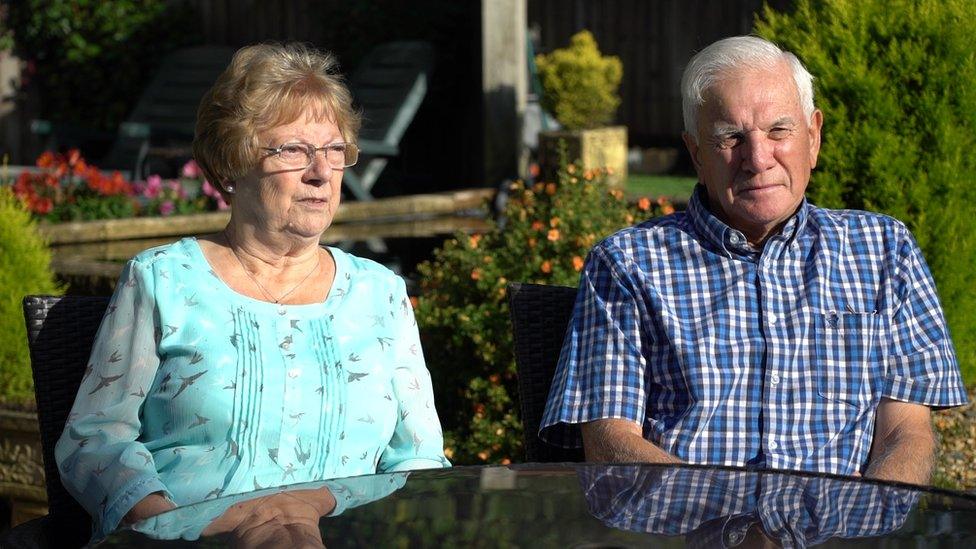
Lynda and Roger Lane said someone "could've helped" their daughter
Dr Lamont's medical records, which contained details of previous suicide attempts, were not accessed by the nurse, although the police said they could have been.
"Knowing that Debbie had tried to take her own life, they only spoke to her over the telephone," said Mrs Lane, 72.
"She told this lady she was OK, that she wasn't suicidal and that she'd go and see the mental health team the following day, and that was it.
"They had no knowledge of her records. If they'd have tapped into her computer and got her notes they would've seen that she was fairly vulnerable. But none of that was done.
"And then by 9pm they all left her. Surely somebody could've helped her."
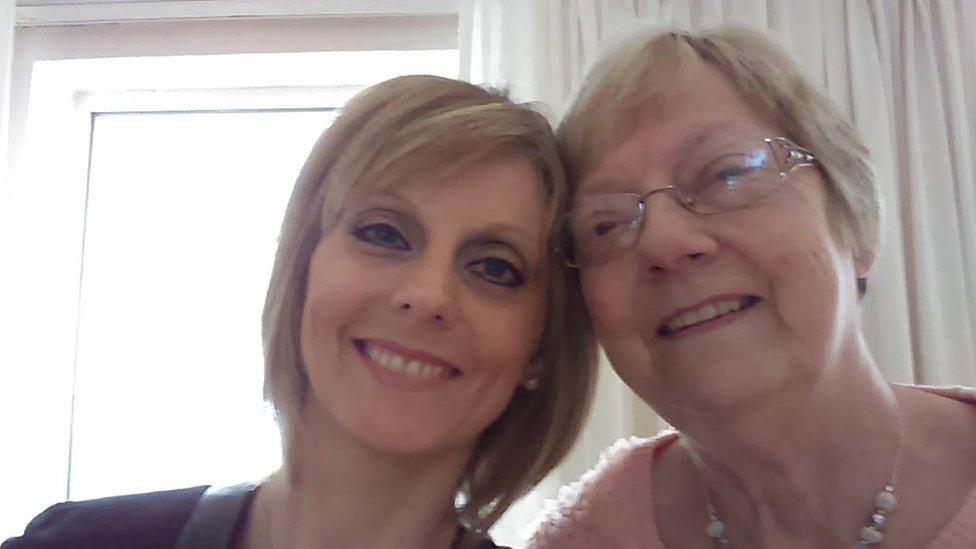
Lynda Lane said mental health nurses should have looked at her daughter's records
The coroner issued a report to prevent future deaths after Dr Lamont's inquest, raising concerns that in a similar situation someone else could be left.
He asked for the police to clarify their interpretation of the Mental Health Act to prevent this happening.
The College of Policing said it had issued further guidance clarifying that people on short stays in hotels could be sectioned and shared it with police forces in Wales and England.
"The college has asked the Home Office to consider legislative changes to further address this type of situation in the future and this work is being progressed," said a spokesperson.
South Wales Police said guidance used by psychiatric nurses at the mental health triage had now been changed so there was a "clear pathway" when assessing people in crisis.
"At the time of the incident, the mental health triage team did not have access to Dr Lamont's medical history or records," said a spokesperson.
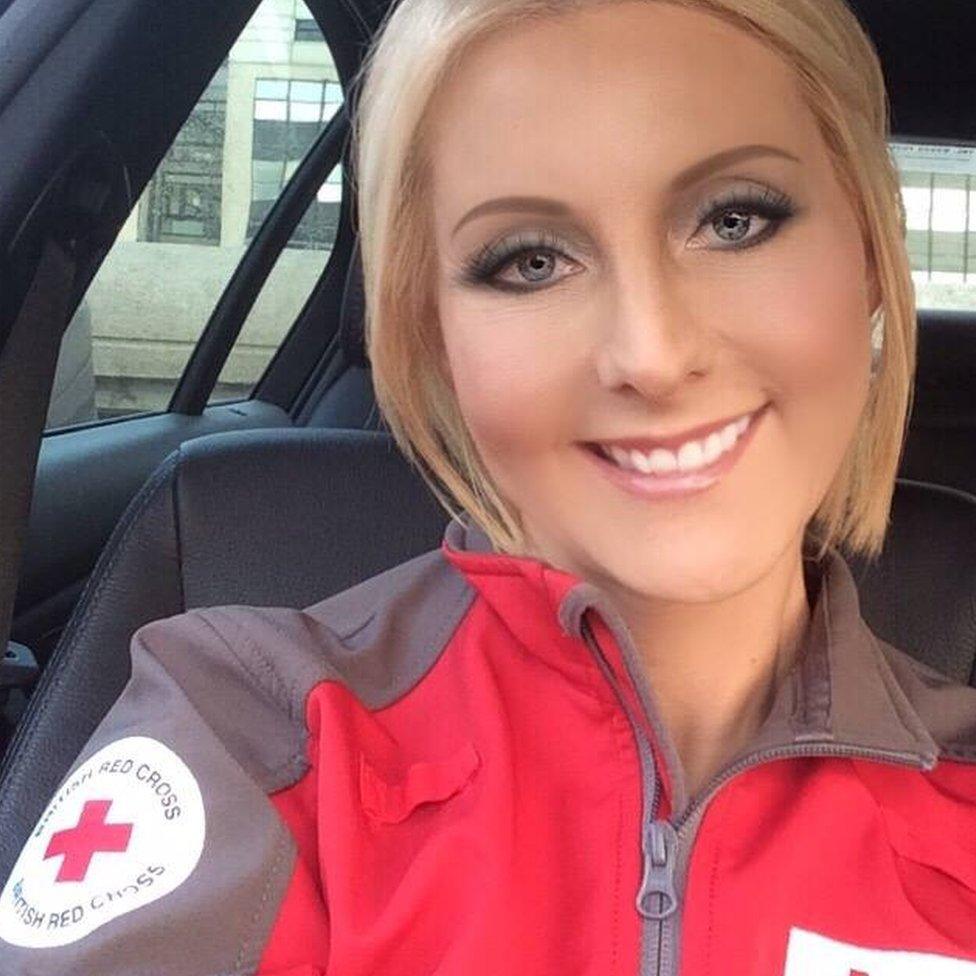
Deborah Lamont had been diagnosed with borderline personality disorder aged 35

"Action to mitigate this risk has since been completed to ensure nurses have good access to mental health records."
Cardiff and Vale University Health Board said there had been an investigation into the circumstances around Dr Lamont's death.
"An action plan was agreed and all staff in this particular service now have access to the electronic record system," said a spokesperson.
"A decision making tool has been developed to inform the triage of patients who require support and care."
The circumstances surrounding Dr Lamont's suicide were raised in the Senedd on Wednesday.
Andrew RT Davies MS asked the minister for mental health whether she would commit to looking into amending legislation around the use of the Mental Health Act in hotel rooms.
Eluned Morgan MS said: "If there is an issue, we can look to whether we want to pursue that with the UK government."
For more on this story, watch BBC Wales Live on BBC One Wales on Wednesday 4 November at 22.45 GMT or on the BBC iPlayer
For information and support on mental health and suicide, visit the BBC Action Line.
- Published18 May 2020
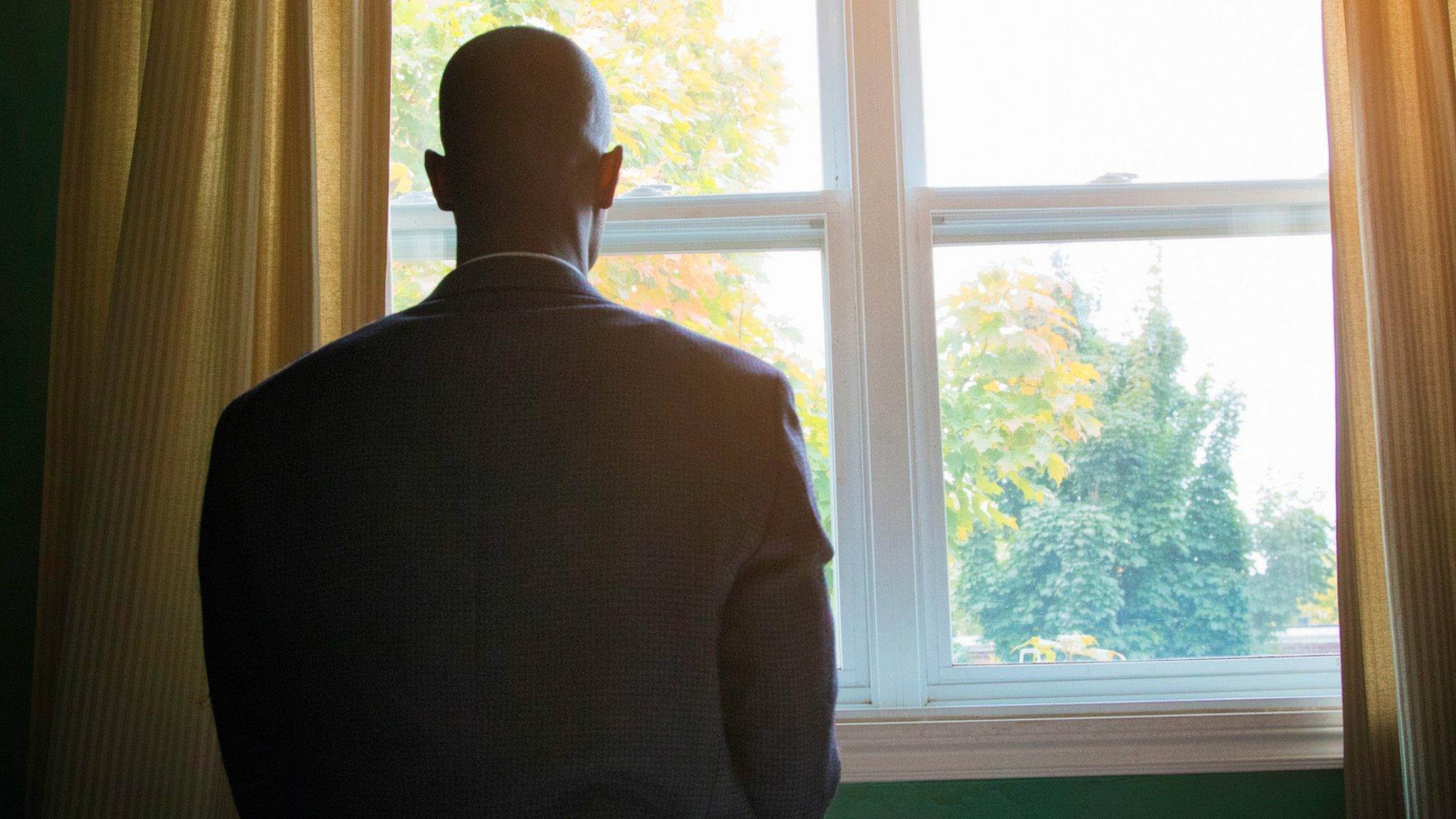
- Published29 March 2020
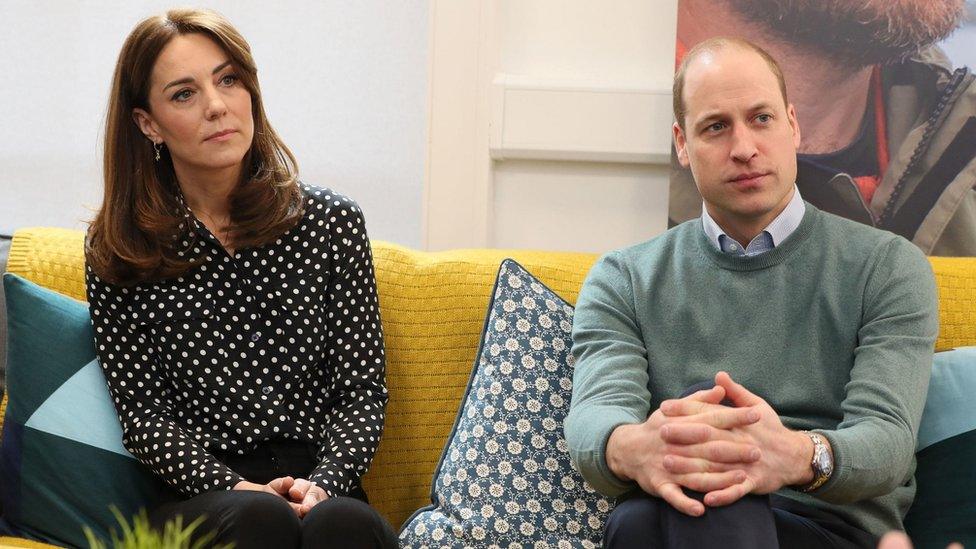
- Published23 March 2020
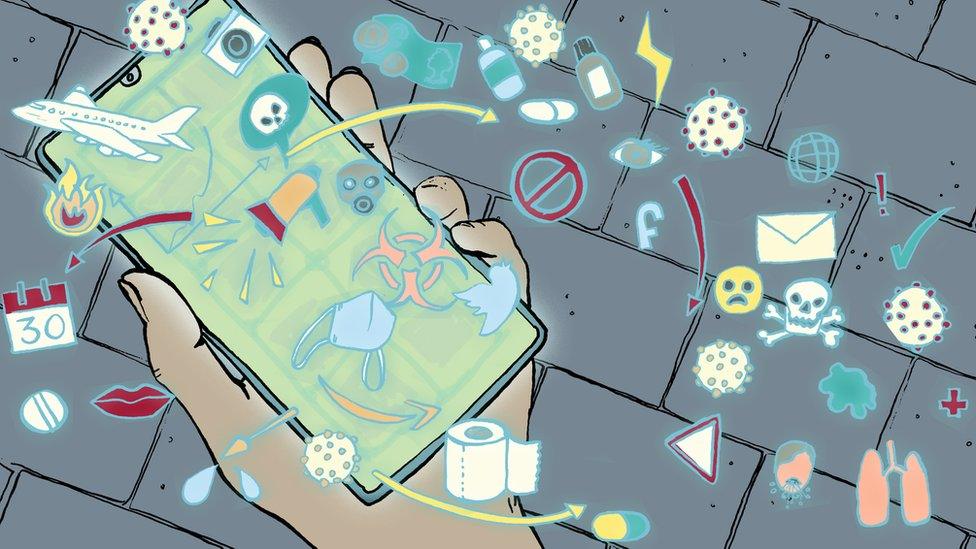
- Published8 October 2019
